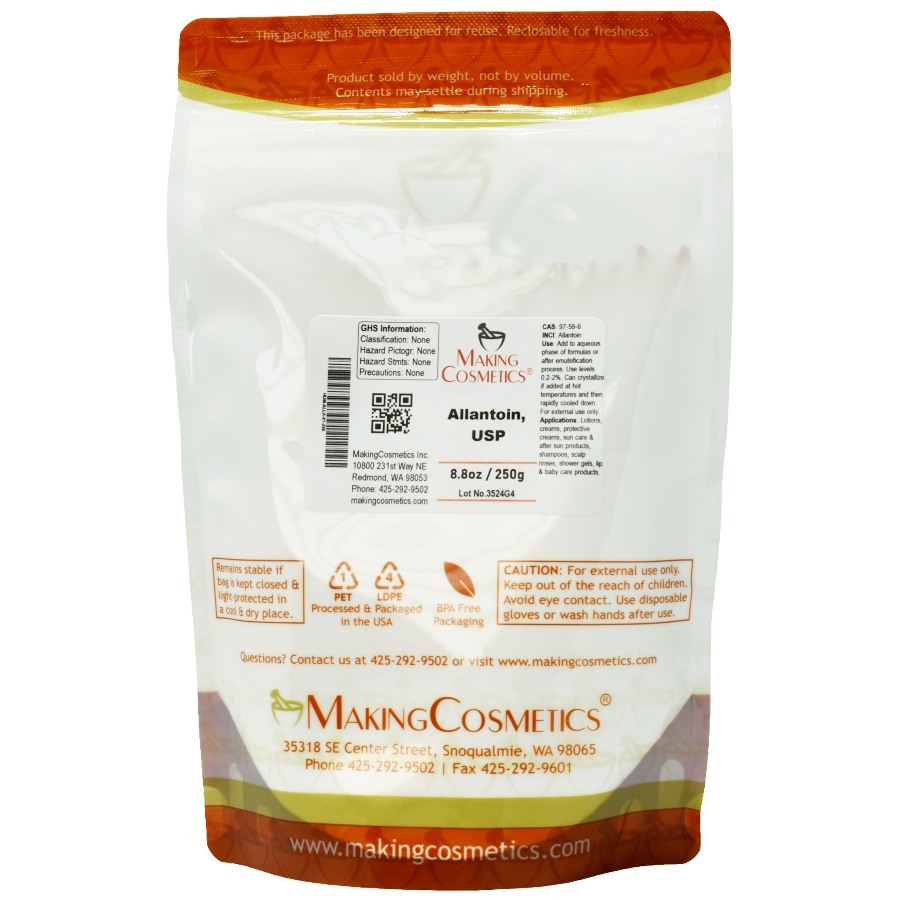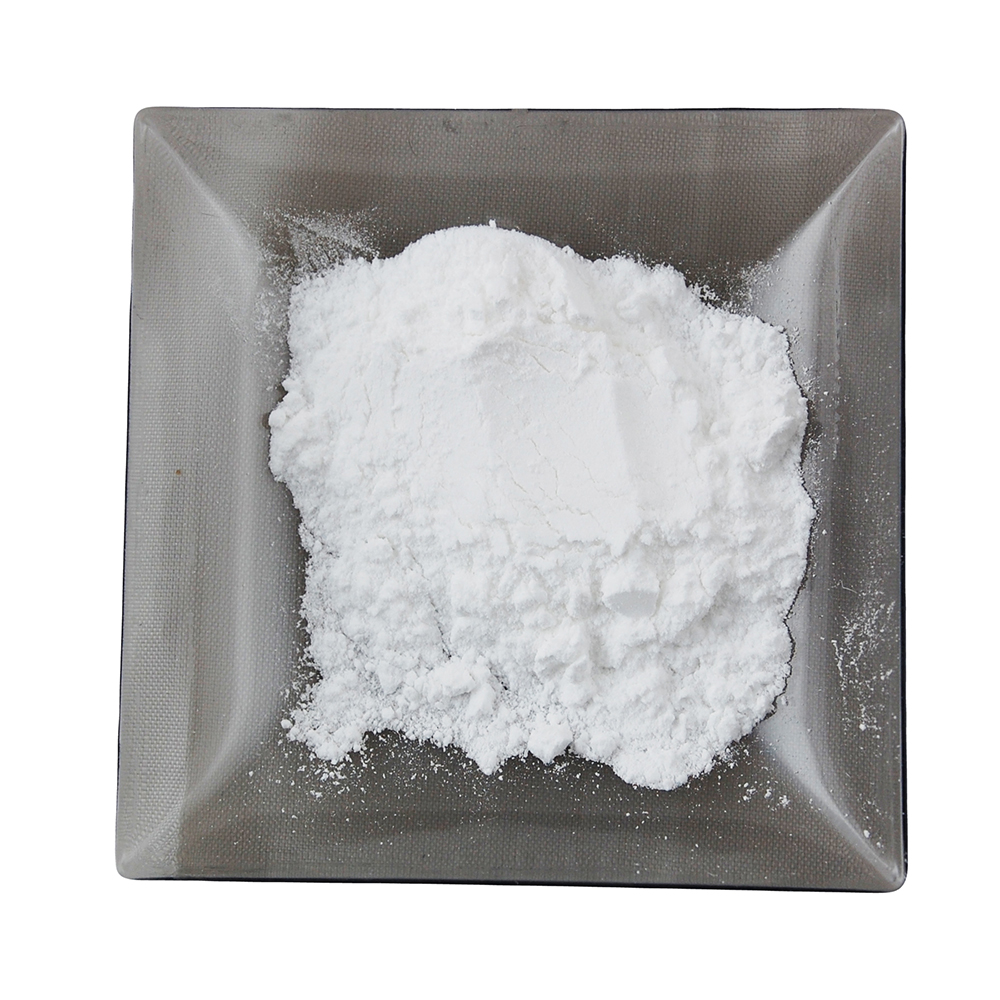Earn 200 Reward Points When You Create an Account
Allantoin, USP
Description
Description
Allantoin occurs naturally in the roots & leaves of the comfrey plant, but to satisfy market needs allantoin is produced synthetically but nature identical. Synonyms: 5-ureidohydantoin, glyoxyl-diureide, 2,5-dioxo-4-imidazolidinyl-urea. Purity 99-100%. Melting point 230°C (446°F).
Benefits
- USP grade
- Soothes and alleviates skin-irritations
- Has moisturizing and hydrating effects
- Recognized as skin protectant by the FDA (see below for making proper claims)
- Often used to minimize pore size
- Has anti-aging properties making the skin look younger and rejuvenated
Use
Add to aqueous phase of formulas or after emulsification process. Use levels 0.2-2%. Can crystallize if added at hot temperatures and then rapidly cooled down. For external use only.
Applications
Lotions, creams, sun care & after sun products, shampoos, scalp rinses, shower gels, lip & baby care products.
Details
CAS
97-59-6
INCI
Allantoin
composition
Allantoin
Purity Grade
USP grade
Appearance
White crystalline powder, odorless
Solubility
Water-soluble (ca. 1g/200 ml; problematic to dissolve if higher than 0.5%)
Preservation
Preservative-free
Storage
Store light-protected at a cool and dry place
Country of Origin
China
Raw Material Source
Glyoxylic acid and urea.
Manufacture
Synthetically produced by direct condensation of glyoxylic acid and urea.
Animal Testing
Not animal tested
GMO
GMO-free (does not contain plant-derived components)
Vegan
Does not contain animal-derived components
HS Code
2933210010
Regulatory Information
Allantoin is registered as an OTC skin protectant drug with the FDA (Category I; allowed concentration 0.5-2%). This means that if you want to sell a finished product containing allantoin and you make a skin protectant claim (incl. minor cuts, scrapes, burns, chapped skin and lips, poison ivy, poison oak, poison sumac, and insect bites), allantoin must then be listed under 'Active Ingredients' on the label. Also, your facility and your product must be registered with the FDA and you must operate under cGMP guidelines. However, if no skin protectant drug claims are made on the label, allantoin is not considered an OTC drug and no registration is needed.
Documents
Formulas
Related Formulas
You might also like

